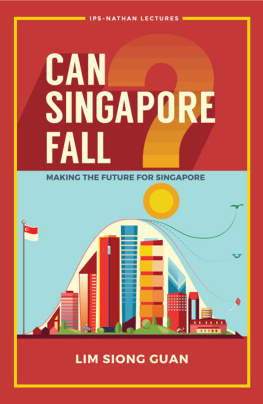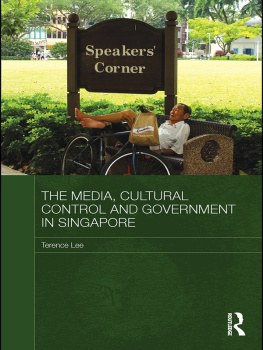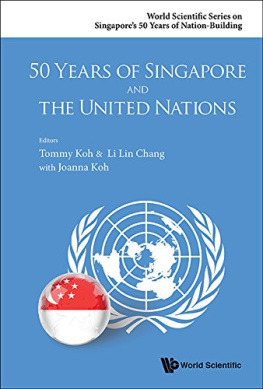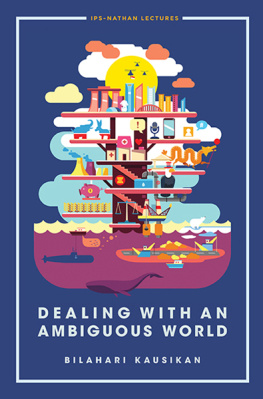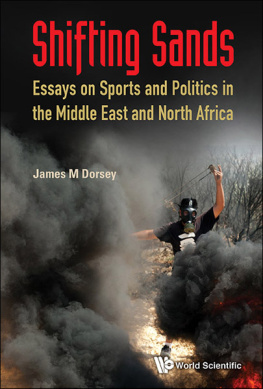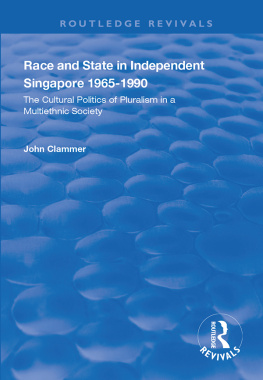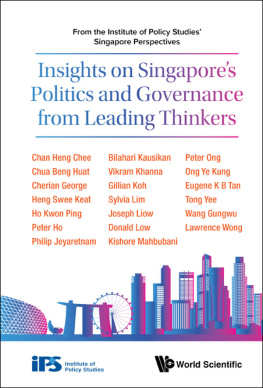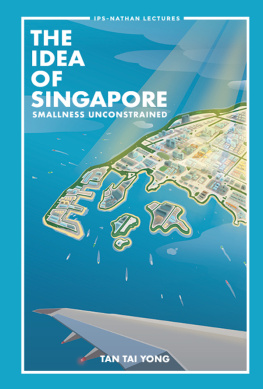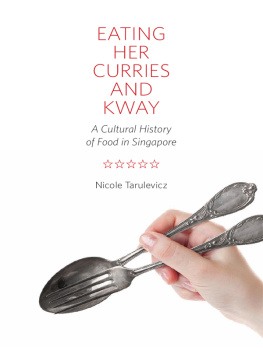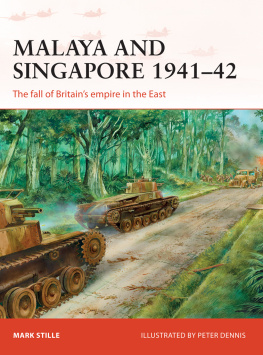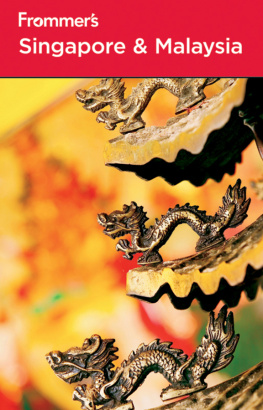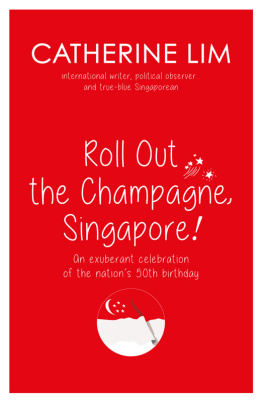Contents
CAN SINGAPORE FALL?
MAKING THE FUTURE FOR SINGAPORE
Published by
World Scientific Publishing Co. Pte. Ltd.
5 Toh Tuck Link, Singapore 596224
USA office: 27 Warren Street, Suite 401-402, Hackensack, NJ 07601
UK office: 57 Shelton Street, Covent Garden, London WC2H 9HE
British Library Cataloguing-in-Publication Data
A catalogue record for this book is available from the British Library.
CAN SINGAPORE FALL?
Making the Future for Singapore
Copyright 2018 by World Scientific Publishing Co. Pte. Ltd.
All rights reserved. This book, or parts thereof, may not be reproduced in any form or by any means, electronic or mechanical, including photocopying, recording or any information storage and retrieval system now known or to be invented, without written permission from the publisher.
For photocopying of material in this volume, please pay a copying fee through the Copyright Clearance Center, Inc., 222 Rosewood Drive, Danvers, MA 01923, USA. In this case permission to photocopy is not required from the publisher.
ISBN 978-981-3238-07-7
ISBN 978-981-3238-62-6 (pbk)
For any available supplementary material, please visit
http://www.worldscientific.com/worldscibooks/10.1142/10935#t=suppl
Desk Editor: Sandhya Venkatesh
Typeset by Stallion Press
Email:
Printed in Singapore
THE S R NATHAN FELLOWSHIP
FOR THE STUDY OF SINGAPORE
AND THE IPS-NATHAN LECTURE SERIES
The S R Nathan Fellowship for the Study of Singapore was established by the Institute of Policy Studies (IPS) in 2013 to support research on public policy and governance issues. With the generous contributions of individual and corporate donors, and a matching government grant, IPS raised around S$5.9 million to endow the Fellowship.
Each S R Nathan Fellow, appointed under the Fellowship, delivers a series of IPS-Nathan Lectures during his or her term. These public lectures aim to promote public understanding and discourse on issues of critical national interest.
The Fellowship is named after Singapores sixth and longest-serving President, the late S R Nathan, in recognition of his lifetime of service to Singapore.
Other books in the IPS-Nathan Lecture series:
The Ocean in a Drop Singapore: The Next Fifty Years
by Ho Kwon Ping
Dealing with an Ambiguous World
by Bilahari Kausikan
The Challenges of Governance in a Complex World
by Peter Ho
CONTENTS
FOREWORD
T his series of three lectures on the theme Can Singapore Fall? was composed out of a concern for the survivability and sustainability of Singapore.
That Singapore has survived and succeeded for just over 50 years is no guarantee of its survival and success in the next 50 years, or beyond. And, in fact, we must know that just continuing on the path of yesterday is to guarantee a future that will not be so bright, possibly even a future that may not be there.
I do not mean to be dramatic or melodramatic here. But having spent 37 years in the Singapore Civil Service, with five years as Head of the Civil Service, and having had the privilege of observing how Mr Lee Kuan Yew and Dr Goh Keng Swee, the pre-eminent leaders among Singapores founding fathers, thought and acted, I felt it necessary to share my views as to how to better assure a good future for the generations to come. This was why I accepted the S R Nathan Fellowship.
While the theme of the lecture series is Can Singapore Fall?, one will soon realise that the real question I wanted to pose is, Will Singapore Fall? except that, if I were to set it as such, it might sound a little pre-deterministic and pessimistic. So, Can Singapore Fall? is a more neutral question. Obviously, however, when we ask the question in that way, the answer can only be, Of course, it can. The real challenge is to find a way to think and act, so as to minimise the likelihood of Singapore falling.
Where the future is too difficult to predict, a strategy of reacting to events or simply doing what is agreeable and popular will be both foolhardy and irresponsible. Where the future is unclear and unpredictable, it becomes absolutely critical to start with a vision of where we want to get to or what we want to become, and then think through what we need to do to get there. It is in thinking of what we need to do that we weigh the realism of our vision and adjust our plans accordingly.
The essential starting question is, What kind of Singapore do we want in the next 10, 20, 50, 100 years? What is the Singapore we would like to see (if we were still alive then) when SG100 (100 years of Singapores independence, the year 2065) comes around? We could take the attitude that SG100 will happen anyway just be patient and wait. But this could then simply be a case where, to wait and see is to wait and die.
SG100 will be the time of the fourth generation of Singaporeans since independence in 1965. For many Singaporeans today, this will not be the generation of our children or even grandchildren. It is the generation of our great grandchildren.
One may find it ludicrous to think of Singapore in 50 years when no one can even be clear what the future would be like in 10 years. But if we think that way, then we are thinking in a reactive mode, where we need to know a situation before we can think of what to do. Instead, we should be thinking of a future we can shape and create, even though we may be a small country, subject to events and developments in the world that are often beyond our control.
No doubt, each generation of Singaporeans must solve its problems in its own way. However, some problems take several decades to take root, and some matters take consistent effort over a generation to prevent them from becoming intractable problems. These are the issues that require courage and wisdom today, so that future generations will not curse the current generation for a profound dereliction of duty.
My first lecture described Singapore as The Accidental Nation, a nation unplanned in its creation and unexpected in its survival. But while there is much that can be learnt from the past, it would not be adequate for the future. My second lecture was on The Fourth Generation of Singaporeans since independence. This is the generation whose days will include SG100. And my third and final lecture was on The Way of Hope, which dicussed how we can best secure a future for the generations to come.
I believe that Singapore had managed to survive and progress since independence because we paid a lot of attention to honour. We honour our word, always, by being trustworthy and dependable; we honour one another, always, by appreciating and respecting one another, keeping the peace, and being united. We made Singapore something out of nothing by building a strong nation brand.
The Honour Circle starts with honour-driven individuals, who will do all they can with their talents and abilities. This builds up honour-driven families, where children grow in self-confidence and strong values, which they imitate from and practise with their parents and siblings. We then go to honour-driven communities, of which a Gracious Society is a key feature. Next, we have honour-driven organisations, which may be businesses or civic organisations, where superior leadership allows people to be the best they can be and do the best they can in pursuit of innovation, excellence and outwardness. Finally, we have the honour-driven nation, where culture and values and clear leadership in government and our national institutions create the foundation for honour-driven individuals to thrive and be the best they can be.
We have reached the status of a First-World Economy. What is the First-World Society we wish to be? What would be right for Singapore and Singaporeans, not just for the current generation but for the generations to come? In the end, it is the kind of society we want to be and the sustainability of such a society that are the crucial issues.

